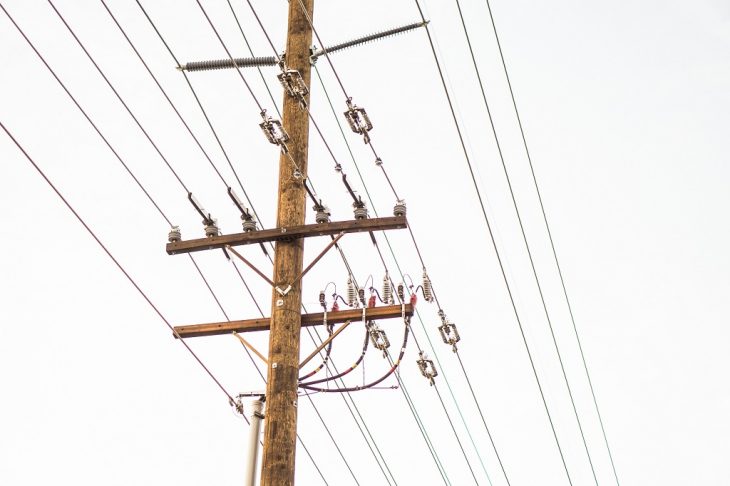
But Cogeco said it could still impact project cost and delivery in Ontario
By Ahmad Hathout
The replacement of utility poles preserved with pesticides using a toxic chemical called pentachlorophenol is unlikely to significantly impact broadband project rollouts, according to Innovation Canada and some telecoms, but concerns still linger.
Health Canada issued a notice in October 2022 cancelling the registration of products using the chemical, after reviews by the European Union, Switzerland, New Zealand and Japan found it posed health hazards. Health Canada’s special review found the chemical causes adverse effects on the environment and humans.
The notice ordered products using the chemical to be decommissioned over the year from the date of the notice, which includes utility poles on which telecommunications equipment is housed.
A briefing note from British Columbia’s Citizens’ Services warned that the rule could delay the deployment of some broadband projects.
“The impact to the pole supply chain in the short term could impact both CleanBC utility upgrades and Connectivity project timelines,” said the January briefing note, obtained by Cartt.
In response to questions from Cartt after publishing, a spokesperson for BC Hydro said the utility has not installed penta-treated poles since the 1990s. But “with other utilities still using them, including broadband companies, there is potential for a shortage of poles due to changing regulations,” the spokesperson said.
“We have raised our concerns over the potential impact of the implementation of the regulations to the supply of poles,” the spokesperson added. “While some progress has been made, we are monitoring the issue closely.”
However, while Health Canada ordered the products using the chemical to stop being sold or imported on October 4, 2022, the last day to actually use leftover inventory on products is October 4, 2023. In other words, utility poles can still be treated with the chemical until that date.
“ISED anticipates limited or no impact on existing poles,” a department spokesperson told Cartt, citing the effective date of the phase-out. “In addition, under the Universal Broadband Fund (UBF), funding recipients are required to notify ISED of any material risks that could impact broadband project delivery.
“At this time, funding recipients have not raised the phase-out of this product as a concern that would materially affect broadband project timeliness under the UBF,” the spokesperson added.
A Bell spokesperson said the telco, which owns a network of poles as the incumbent in several areas of the country, has been using an alternative to the penta wood.
“We have not installed poles with penta for many years,” the Bell spokesperson said. “Our suppliers have been sourcing alternatives to penta-treated poles and continue to do so today.”
Rogers deferred to the major utilities. BC’s broadband ministry Citizens’ Services and Hydro One in Ontario did not respond to a request for comment in time for publishing. A spokesperson for Hydro Quebec said the utility still has penta-coated poles, but it has started to replace them in 2002 with another type of pole.
“We have a pole replacement program, and they can be used by telecommunications companies because of our common-use agreements,” said the Hydro Quebec spokesperson.
A Cogeco spokesperson said the number of poles it owns is “not significant enough to have a material impact of their own on our operations” and that, as it nears completion of project delivery in Quebec, it doesn’t expect the phase-out to have “any impact whatsoever in the short term” there.
But, “when considering all pole owners, any situation that could affect the number of poles needed to be changes is a concern,” the spokesperson added.
“In Ontario, work is starting on some provincially and federally funded projects, and this phase-out will probably have an impact on the delivery, cost, and timeline of some of these projects. These replacements may also impact pole attachment fees for ISPs like us, who rely on gaining pole access.
“This is why we are working tirelessly with Hydro-Québec, Hydro One and numerous other utilities companies in Ontario to address issues related to make-ready work and consider this phase-out, while necessary and important, as a potential threat.”
Ontario, like Quebec and British Columbia, has a roundtable to tackle access to the poles, which are crucial for broadband delivery (a request for comment from an Ontario spokesperson was not returned). In fact, delayed access to these structures was ranked as one of the top concerns for broadband expansion in the country, according to CRTC submissions.
Ontario and Quebec have incorporated legislation to speed up access to these poles to fulfill their goals of providing access to high-speed internet throughout their provinces. This week, Cartt reported that Citizens’ Services had proposed ways to accelerate access to the poles, including by proactively notifying BC Hydro about upcoming broadband projects it has approved.
To alleviate some of these concerns, the CRTC in February set timelines on access to poles and ruled that pole replacement costs instigated by the need to accommodate third party equipment should be shared – as opposed to being borne entirely by the requesting attacher.
Photo via Peakpx



